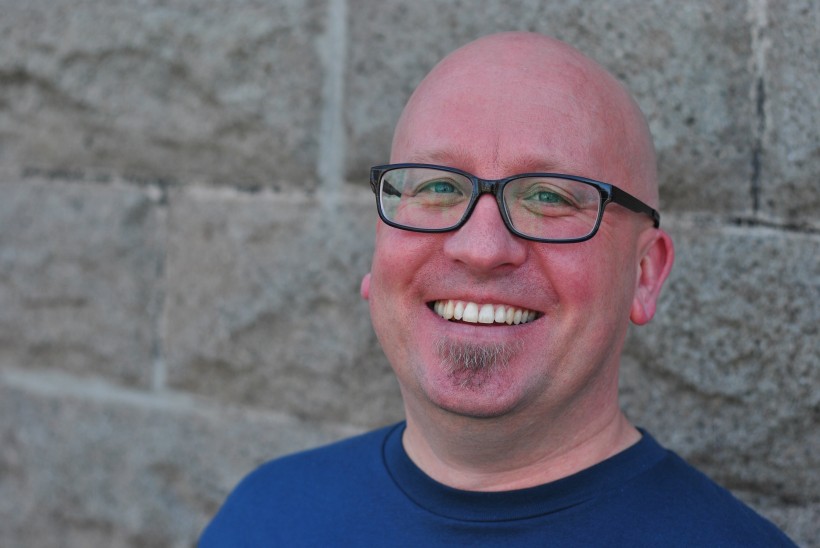Like the other managers of Nova Scotia’s innovation-promoting sandboxes, Darren MacDonald is an entrepreneur. He’s an ergonomist with more than 20 years’ experience of design thinking and seeing experiences from the perspective of the user. It’s a skill set he shares in his role as manager of Cape Breton’s Island Sandbox.
“I try to teach user-centred design—how to ask good questions, look at data. If you work on design thinking, your solution may change from your original idea. That’s part of the process of looking at a problem from different angles,” MacDonald said.
A Cape Bretoner born and raised, MacDonald left the island in 1991 and returned 15 years later, having worked as an ergonomist in 42 U.S. states and every Canadian province. He’s worked across many sectors and now pursues his work as an ergonomist through his consulting company Creative Variant.
But his main focus is the sandboxes. Nova Scotia’s sandboxes were set up three years ago at groups of post-secondary institutions as places where students and others could get together, swap business ideas on specific themes and collaborate on forming startups.
There were four initial sandboxes, and that has now grown to seven. They focus on sectors including agriculture, ICT, social innovation and product development.
The province’s sandboxes are designed to emulate those at Boston’s Massachusetts Institute of Technology, and MacDonald said they are important because they fill a unique niche in the very early stages of idea development.
“Students are building valuable skill sets even if they don’t launch businesses immediately, even if they don’t become entrepreneurs for 20 years,” he said. “And we are feeding students into accelerators like PropelICT and Common Good Solutions. We have all had companies go into those programs.
“One of the winners of the recent Volta Cohort (a new micro fund for Atlantic Canadian early-stage companies) was one of our teams from Shiftkey Labs. They are creating MyMem, an app that helps people with dementia remember key events in their lives.”
MyMem AimsTo Roll Out App in 2018
MacDonald and the other sandbox managers are hoping such successes will encourage the provincial government to maintain their funding. In 2014, the government gave each group $150,000 per year for three years. This has now been extended to March 2018.
“We have funding until March, and the rest is in the hands of the province to see what they want to do,” said MacDonald, whose sandbox focuses on clean technology, as well as supporting entrepreneurial international students and new Canadians, and social entrepreneurship.
He said the sandboxes have been focusing on collaboration with the aim of being maximally useful and cost-effective.
“This past year, we came together and worked across boxes,” said MacDonald.
“We had workshops and lectures and bootcamps. It was great to bring students from all the campuses together. We’re running various events and don’t want to duplicate or coincide.
“We are about to launch an app that will help us coordinate and collect data around our events. We’ve found our rhythm. The programing is becoming more consistent across campuses.”
The sandboxes are also focusing on getting non-business students involved.
“It’s easy to get business students excited, the challenge is to get students from other faculties keen to explore opportunities and problems,” he said. “A lot of ideas sit in engineering or biology and liberal arts programs.”
The outreach extends to high schools. MacDonald said that Island Sandbox is partnering with Brilliant Labs and the Cape Breton Partnership to run a hardware hackathon in a high school in Richmond County.
The father of a nine-year-old boy, MacDonald intends to remain on the island whatever becomes of the sandboxes. Cape Breton’s innovation community is growing and gathering momentum and he intends to remain involved.
“It’s nice to be part of the change happening in Cape Breton,” he said.










